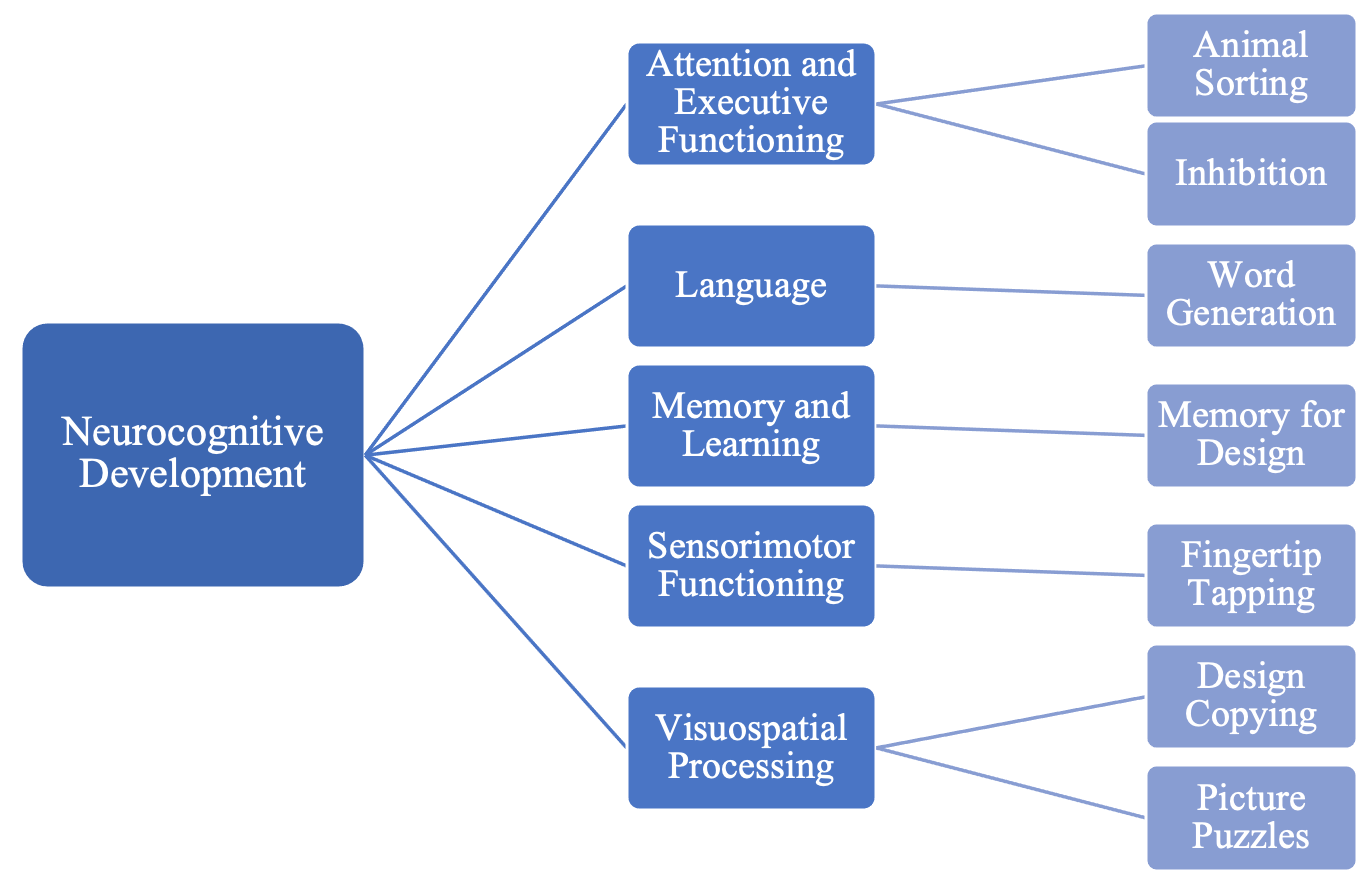Cognitive Assessments
A Developmental NEuroPSYchological Assessment (NEPSY-II)
The Developmental Neuropsychological Assessment (NEPSY-II) is a comprehensive assessment that measures the neurocognitive development of children and adolescents ranging from 3 to 16 years of age. It is designed to assess its domains of attention and executive functioning, language, memory and learning, sensorimotor functioning, social perception, and visuospatial processing.
There are 3 versions of NEPSY-II that ranges from a basic assessment of a child’s neurological condition to a full neuropsychological assessment:
Ψ General Assessment:
Preschool ages (3- to 4-years-old) – 45 minutes
School ages (5- to 16-years-old) – 1 hour
Ψ Diagnostic & Selective Assessment
Varies based on presenting concerns
Ψ Full Assessment:
Preschool ages (3- to 4-years-old) – 90 minutes
School ages (5- to 16-years-old) – 2 to 3 hours
The current iteration of NEPSY has 7 subtests – Animal Sorting, Inhibition, Word Generation, Memory for Design, Fingertip Tapping, Design Copying, and Picture Puzzles. Each subtest assesses a specific neurocognitive domain. For example, Animal Sorting measures a child’s attention and executive functioning while Fingertip Tapping assess a child’s sensorimotor functioning. The figure below highlights which neurocognitive domain is assessed in each subtest.
The number of subtests administered varies according to the needs of each child. For example, if a child particularly struggles with language, speech, and comprehension, it would be preferential to conduct a diagnostic and selective assessment with subtests that involve the specific evaluation of language instead.
The NEPSY-II is commonly combined with behavioural observations from home and school domains.
It is effective in helping to clarify the nature of a child’s problems as it can identify the lack of a specific neurocognitive development. For instance, if a child tends to struggle with Mathematics at school, the NEPSY-II can help to identify if these difficulties are due to a deficit in memory and learning, language, or attention and executive functioning.
This information is also beneficial as it offers a foundation for the child psychologist to facilitate recommendations for mental health interventions. In other words, it aids the child psychologist in implementing appropriate intervention strategies tailored to each child’s specific needs for success in school and at home.
As the NEPSY-II covers a wide range of neuropsychological assessments at a young age, it can be used as part of early childhood assessment or psychoeducational evaluations.
The NEPSY-II is appropriate for children and adults ranging from 3 to 16 years of age.
It takes around 45 minutes to 3 hours to complete the test.




